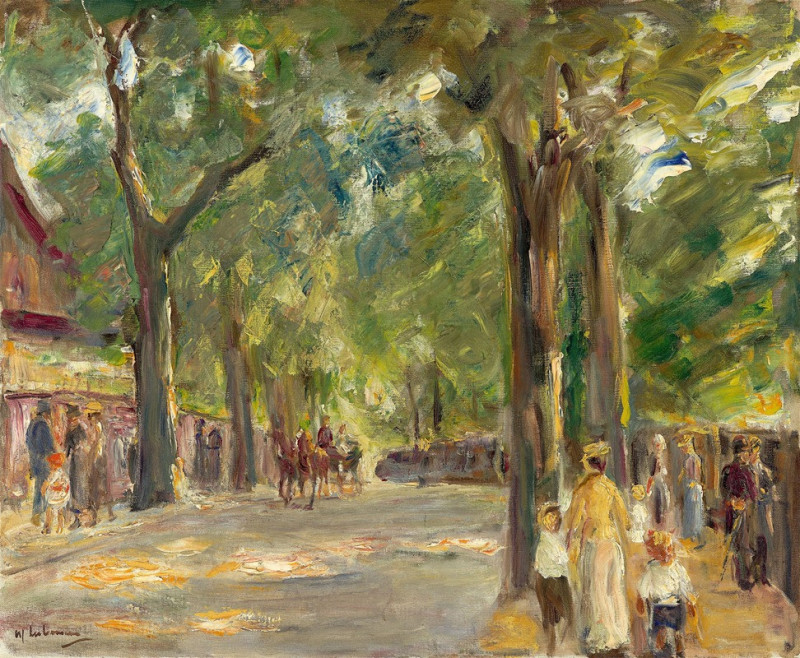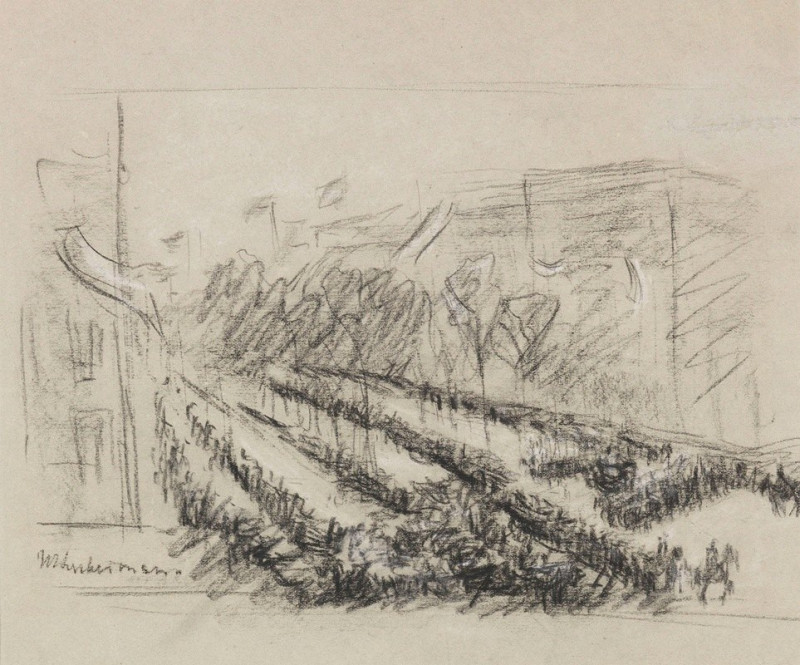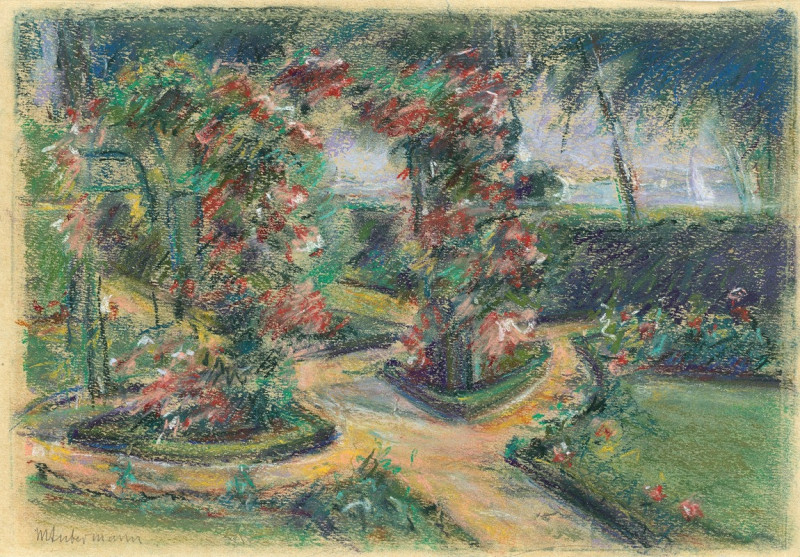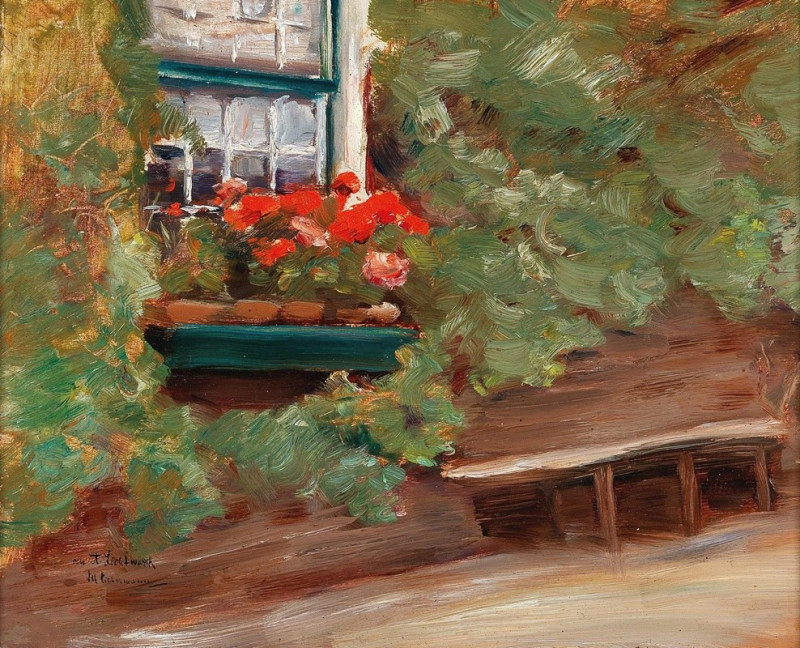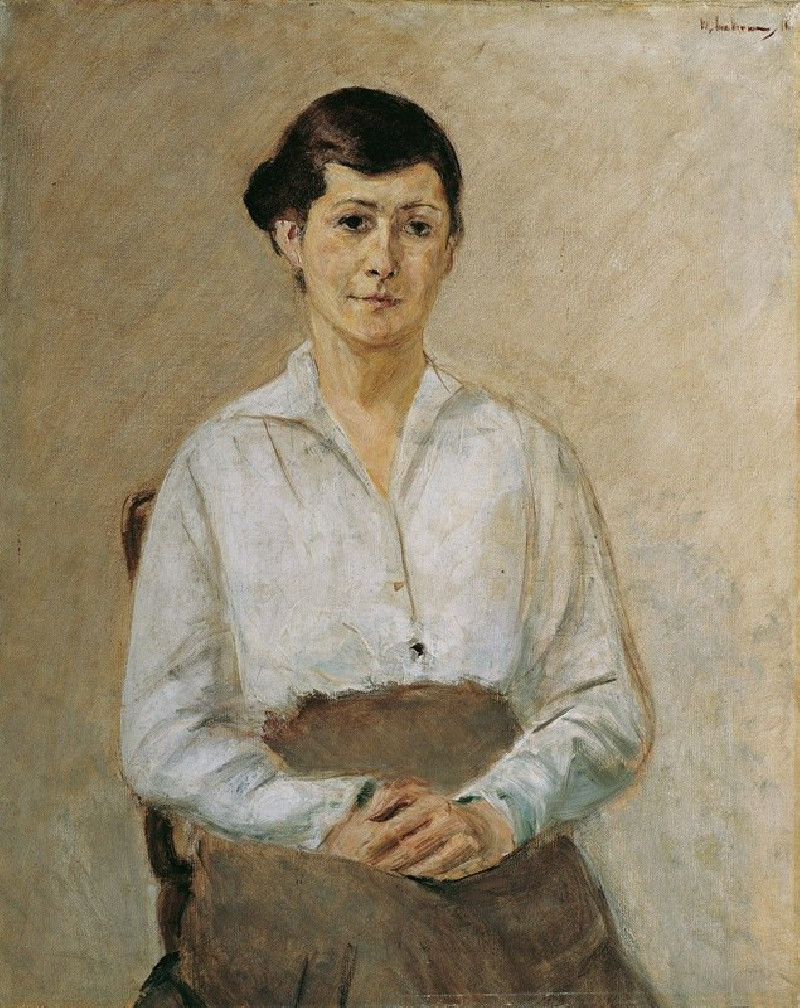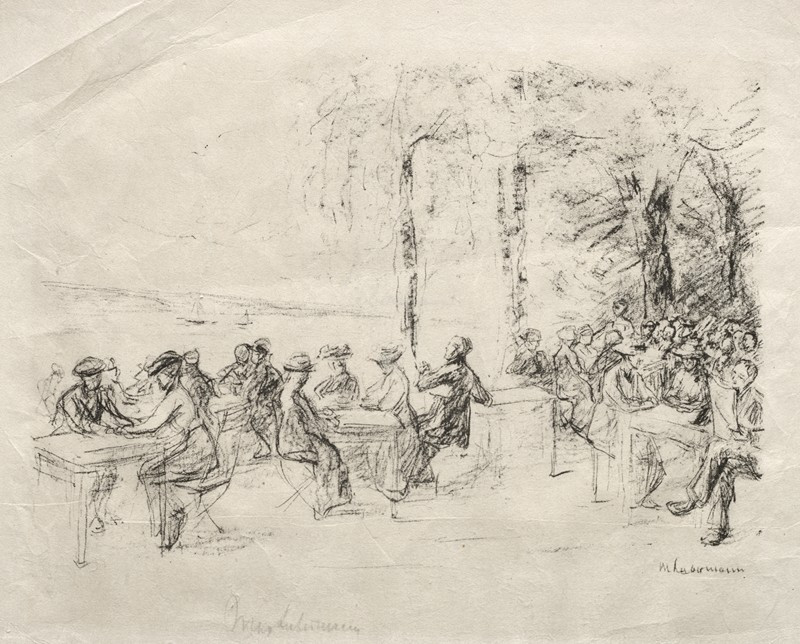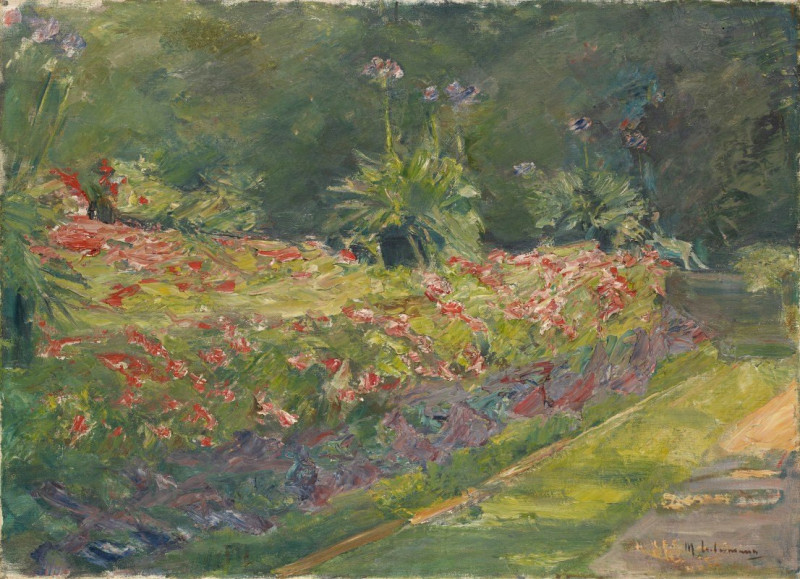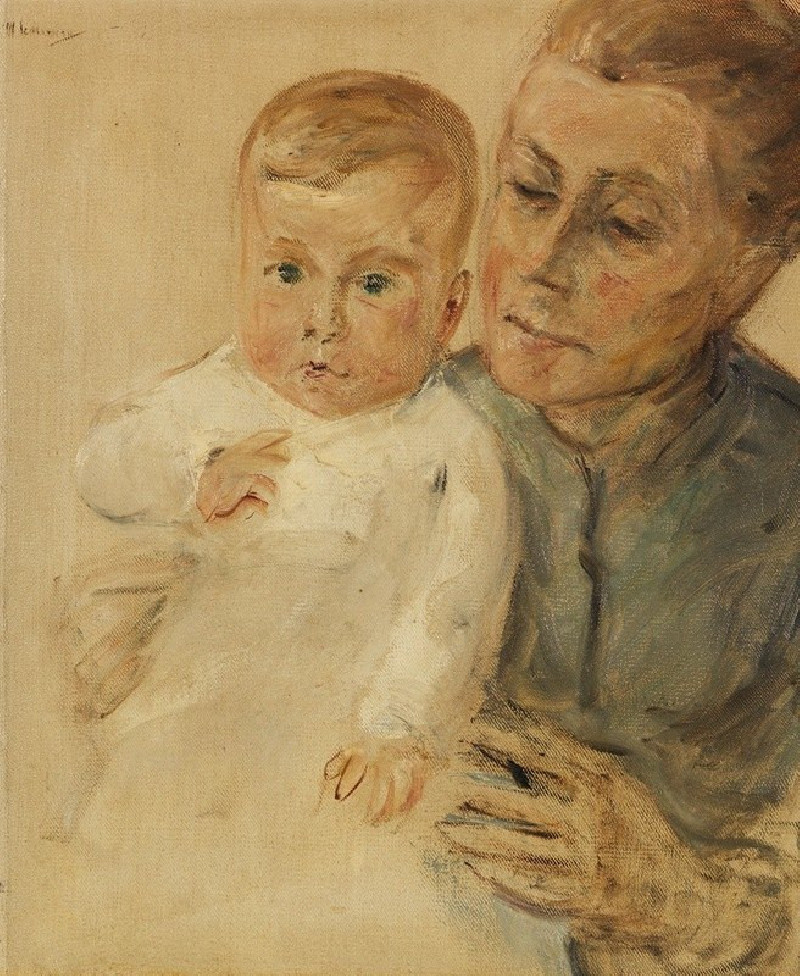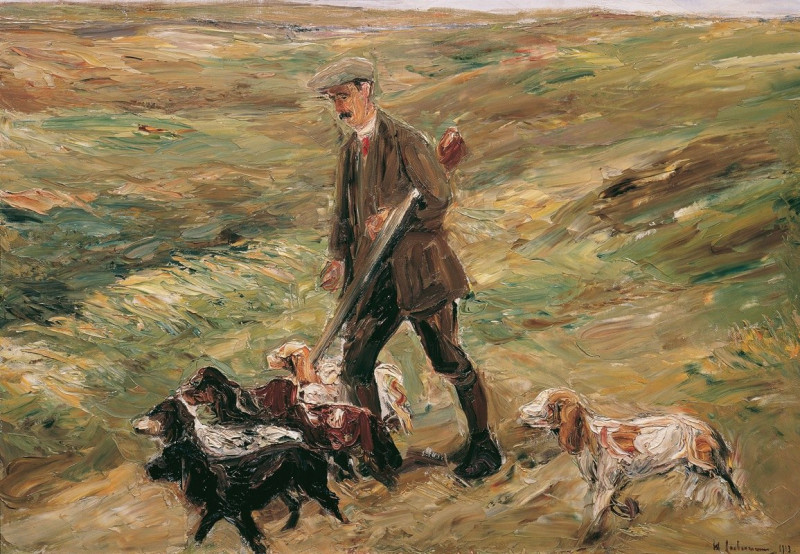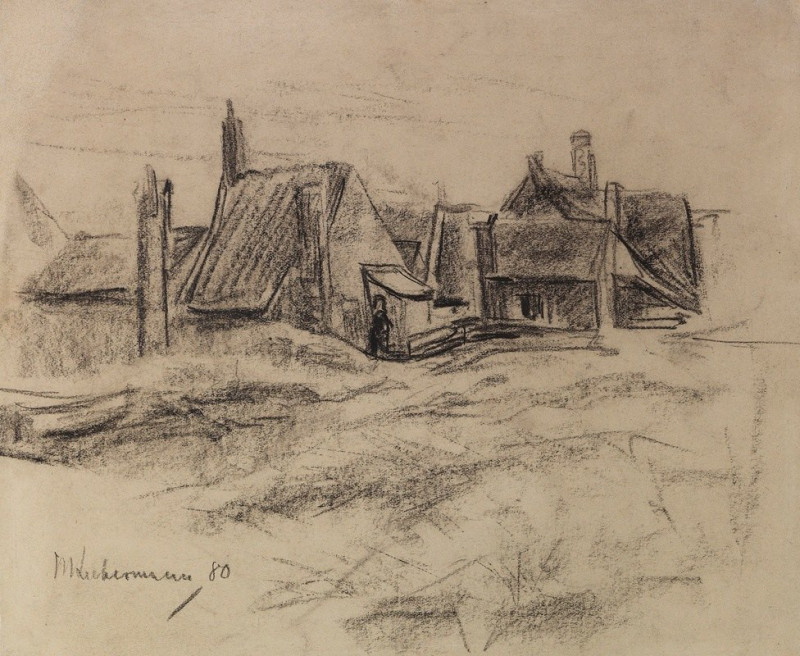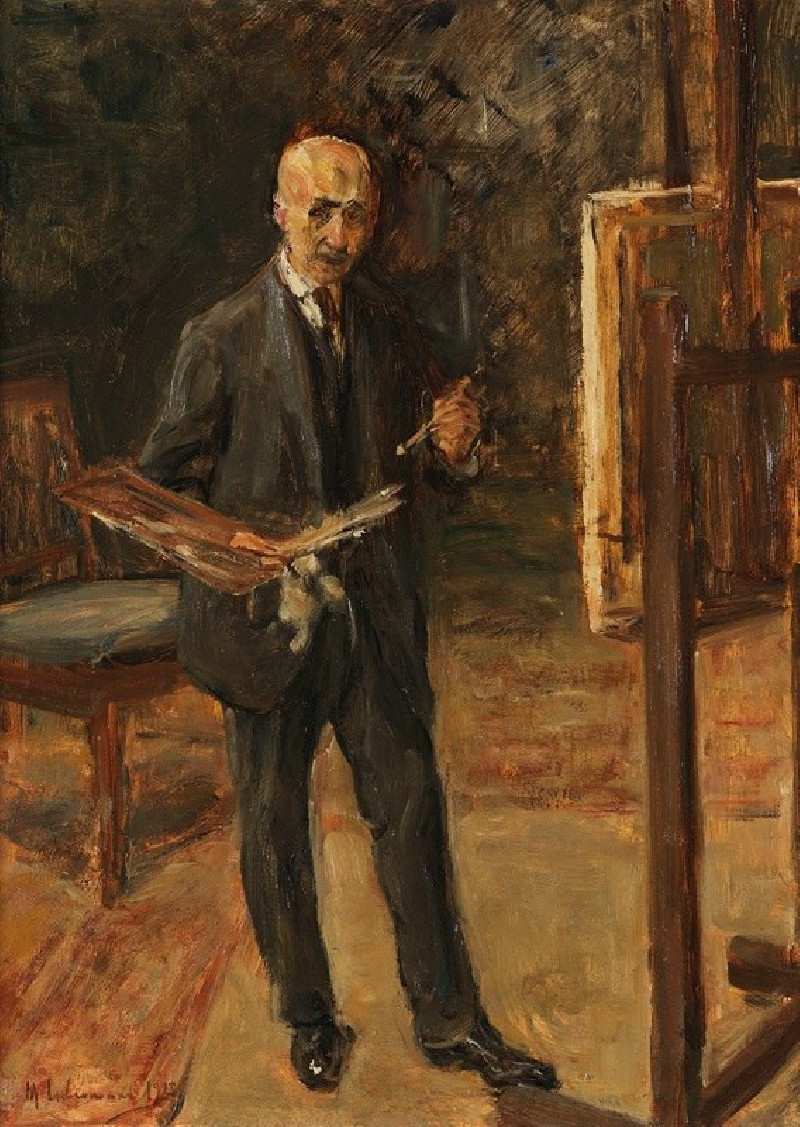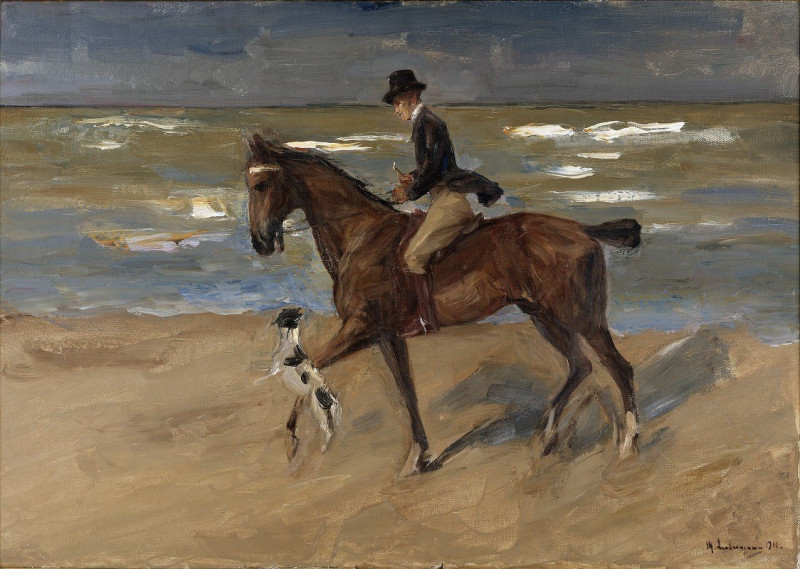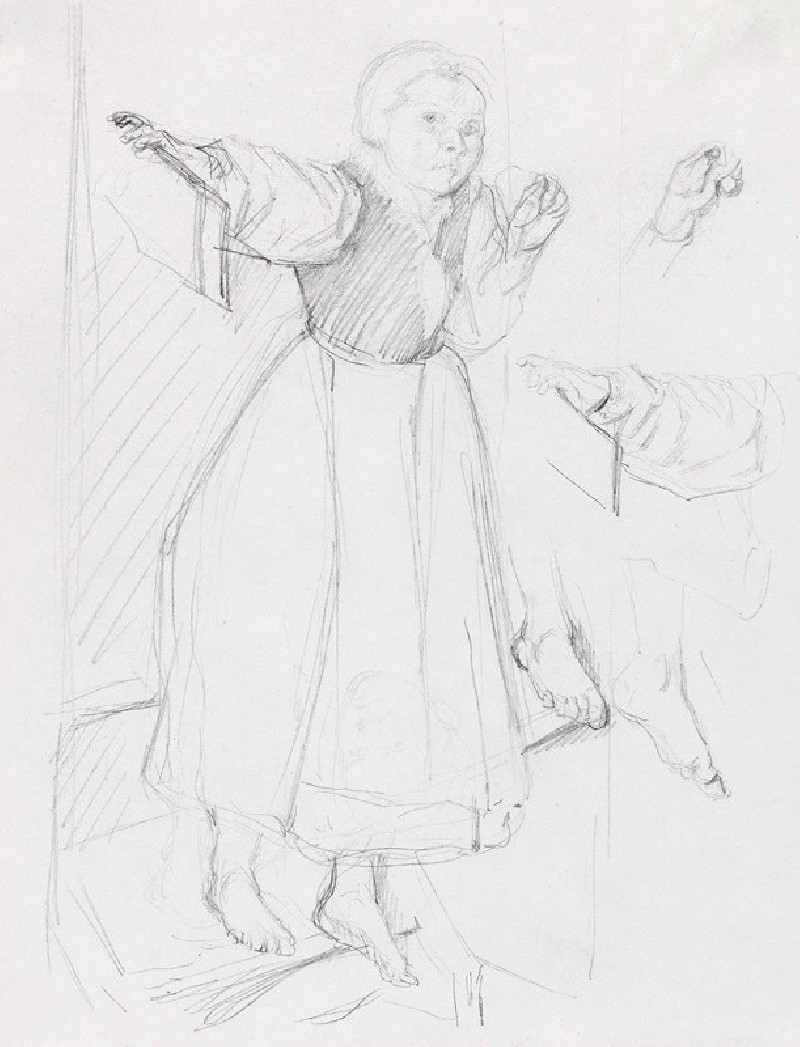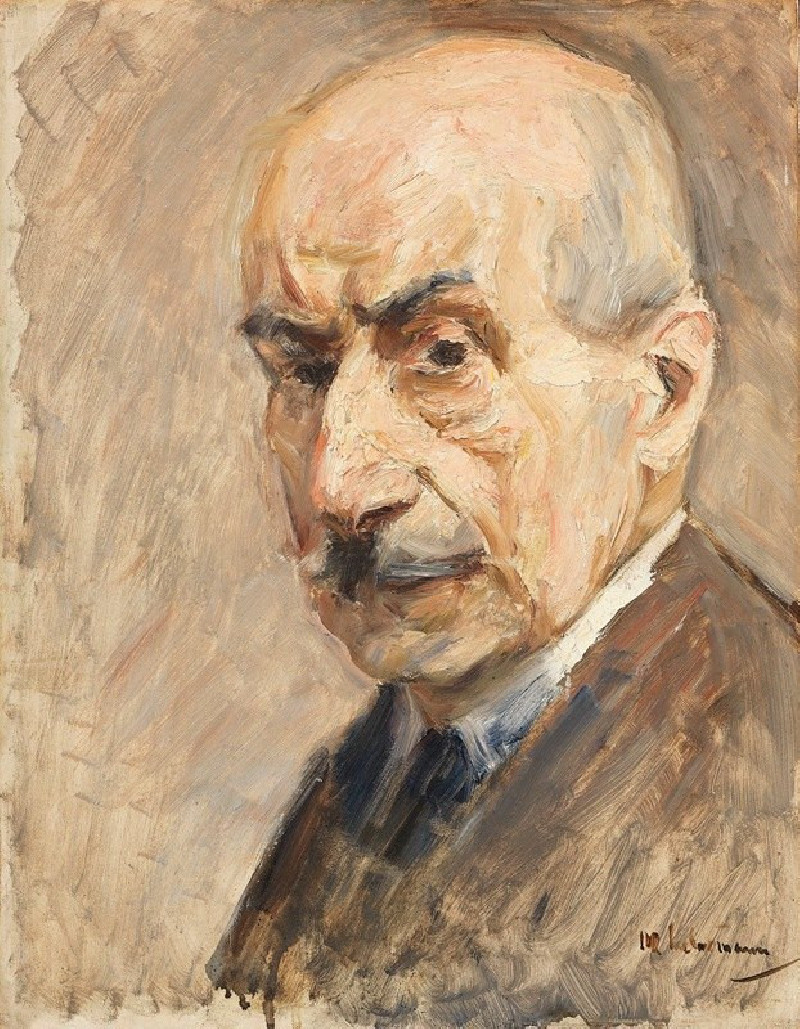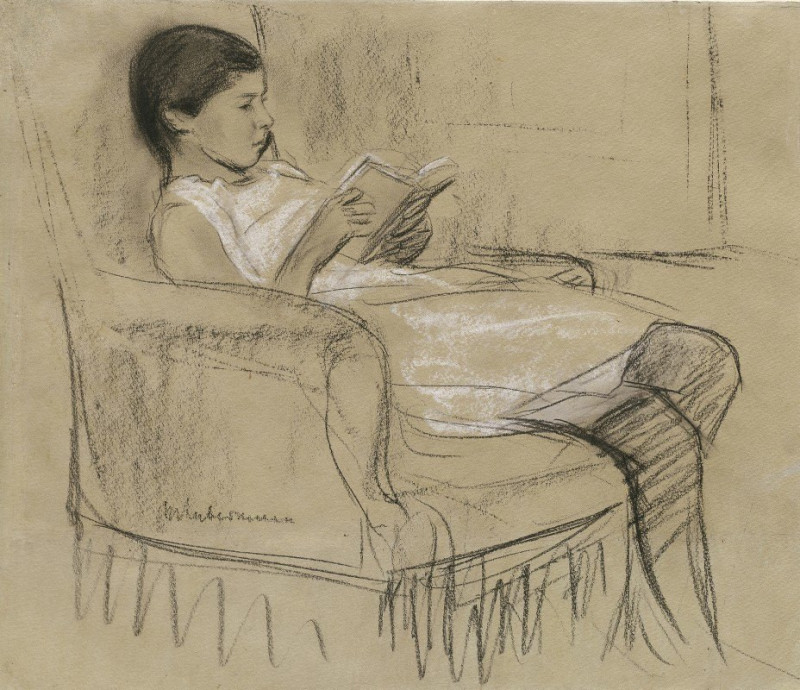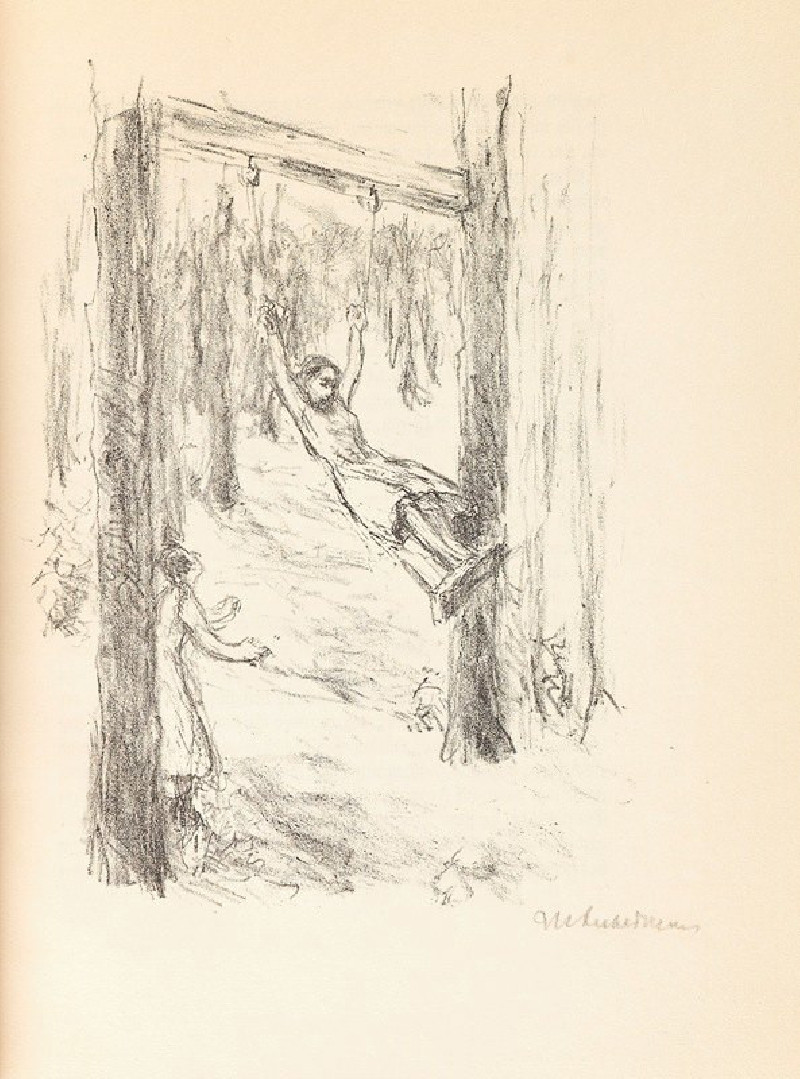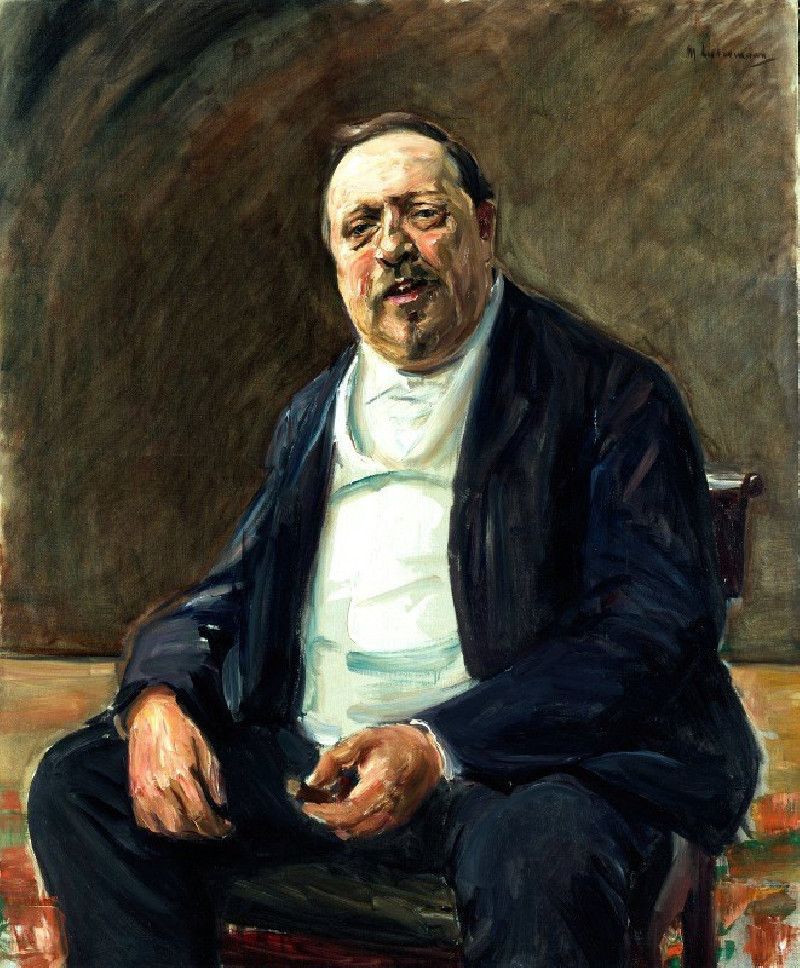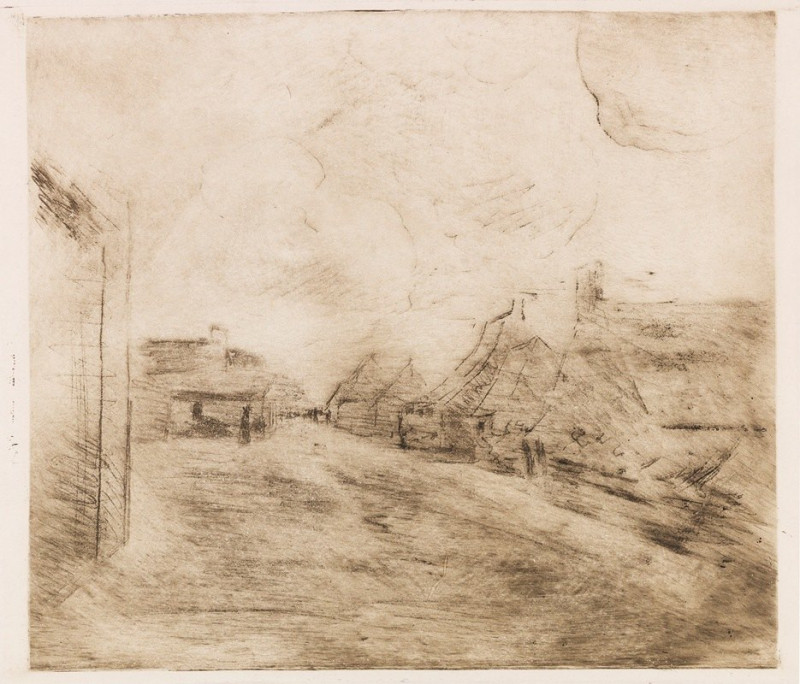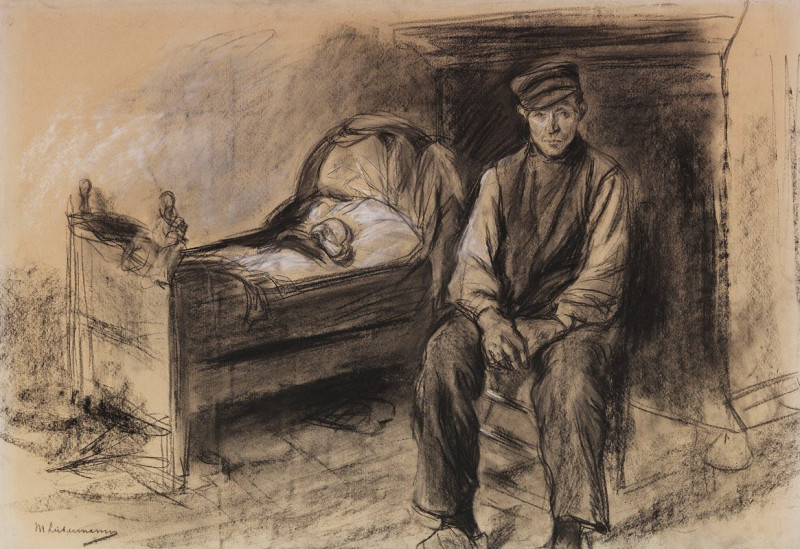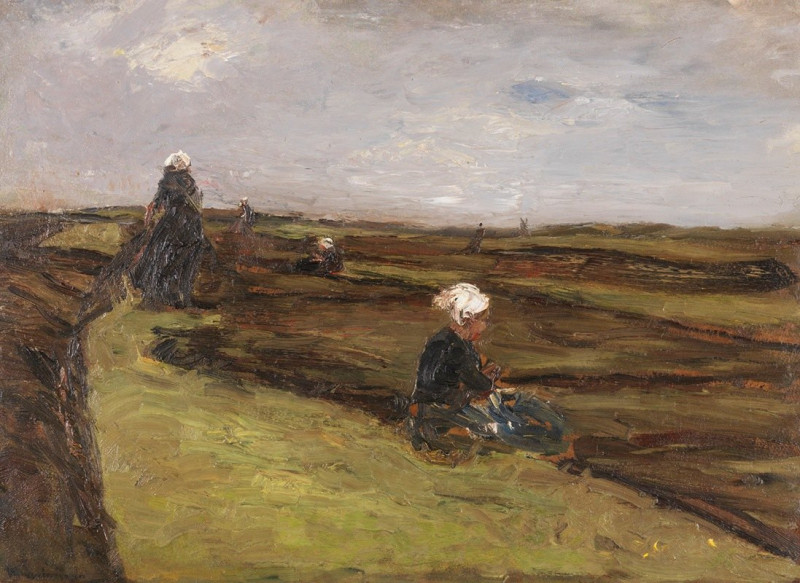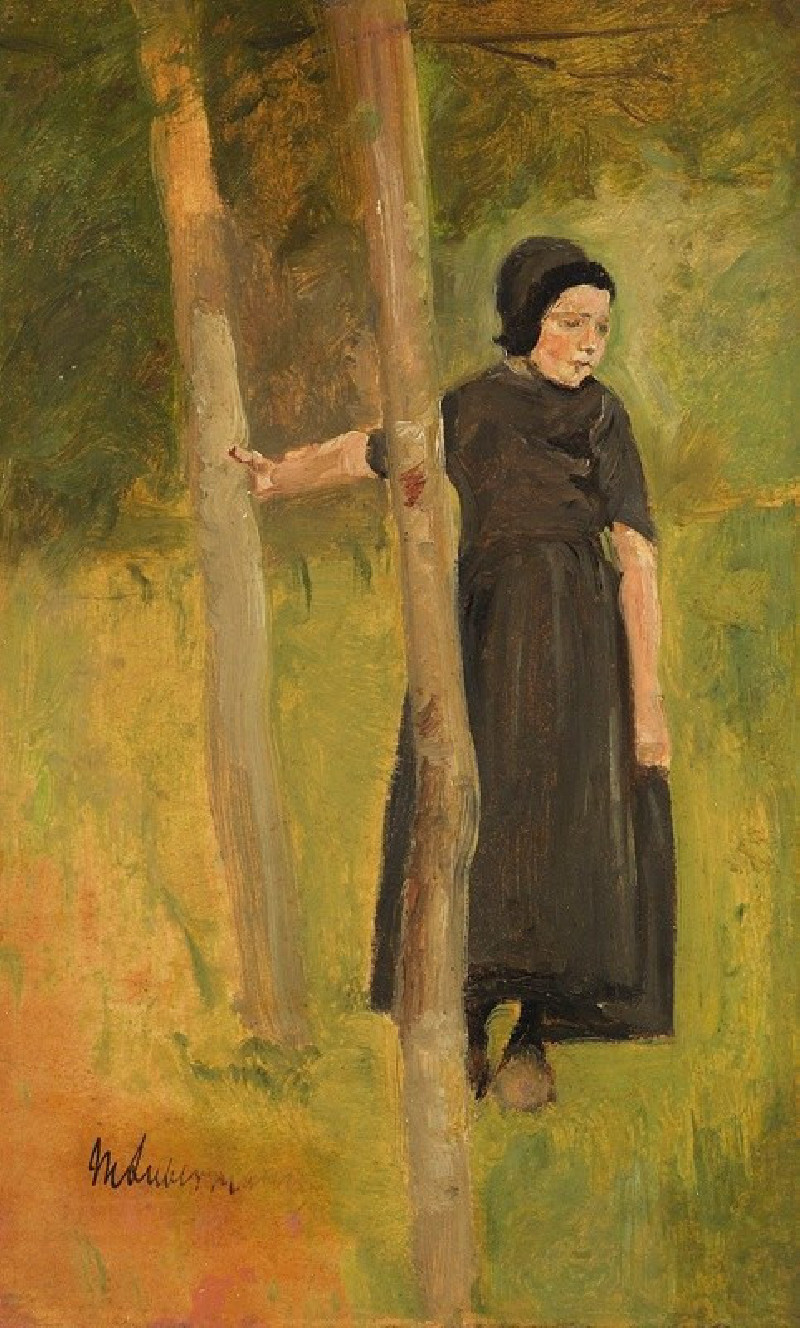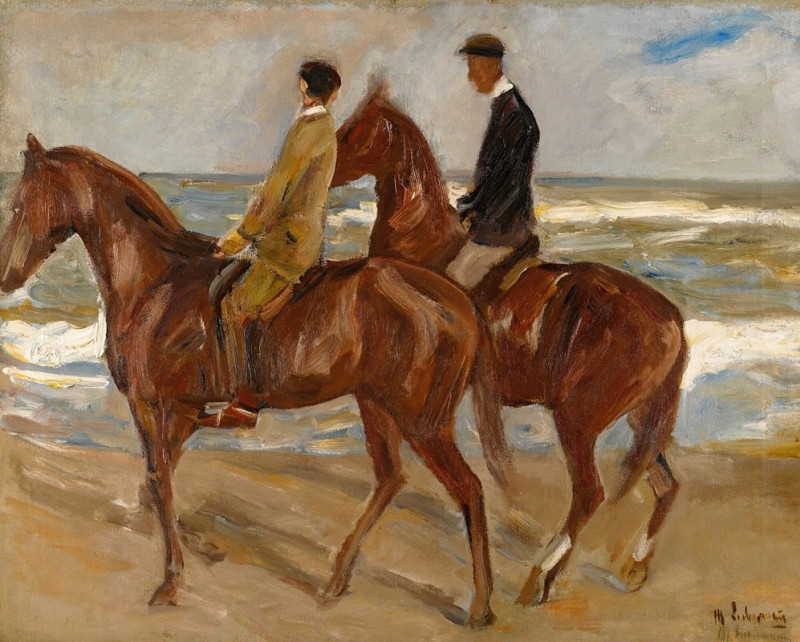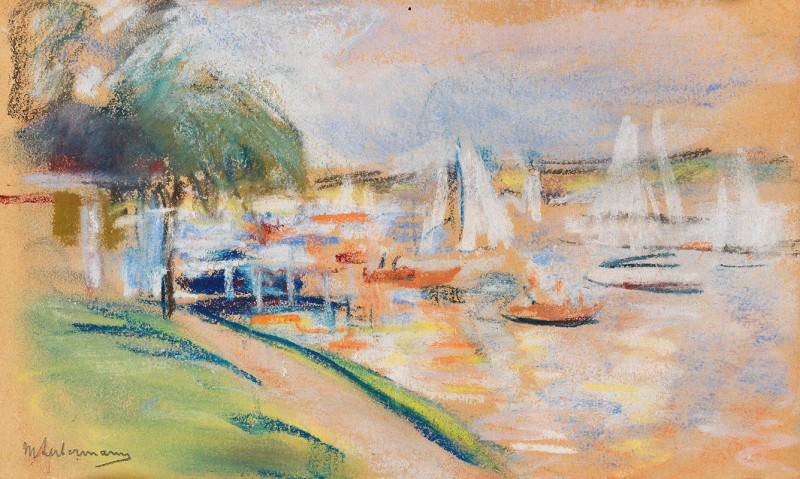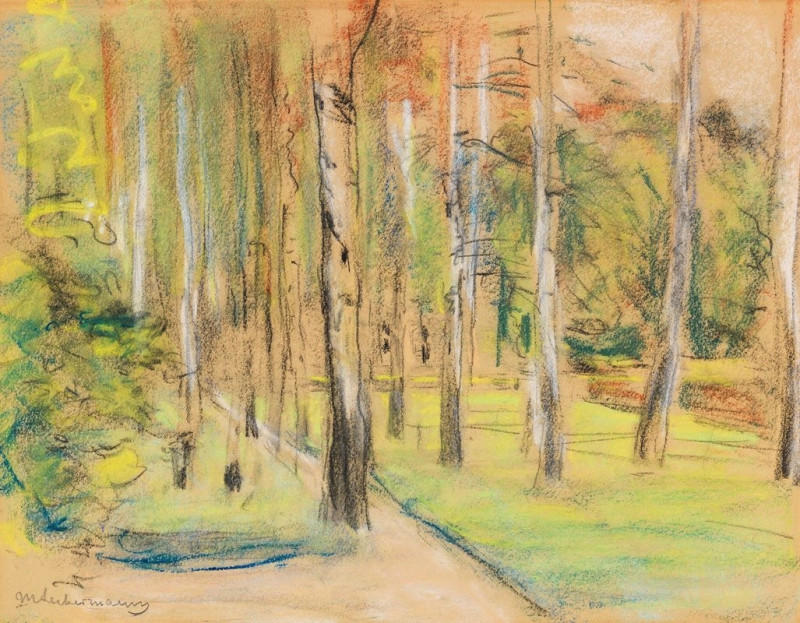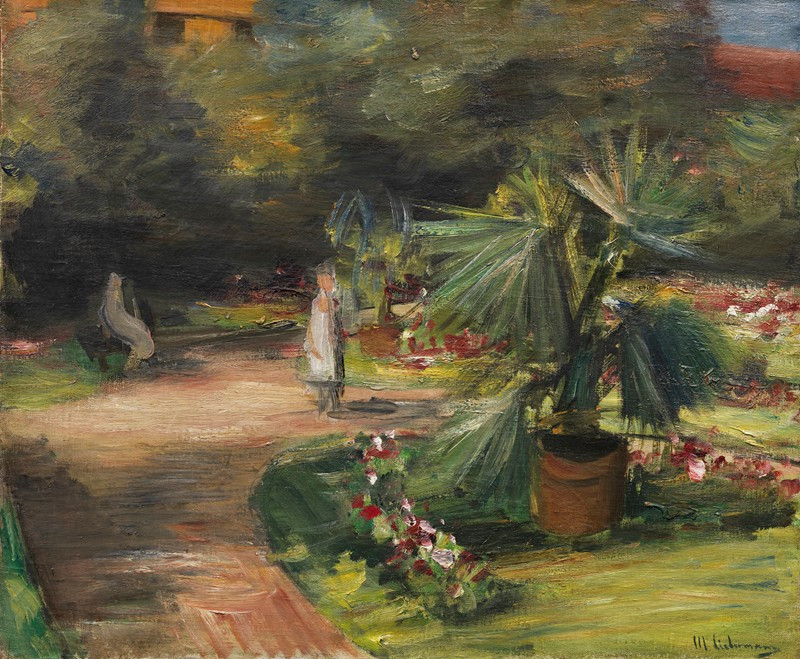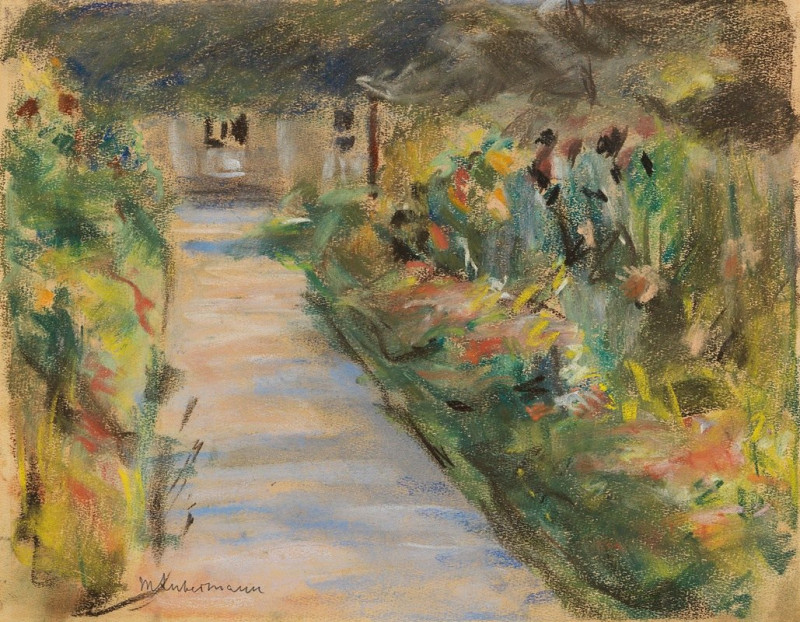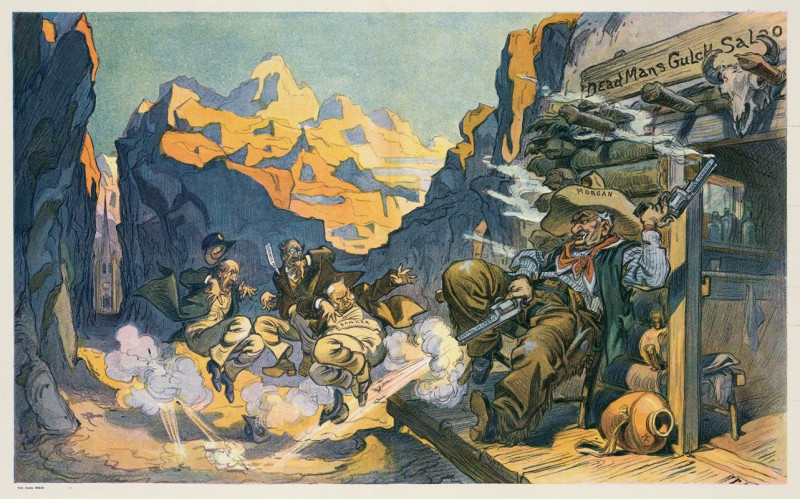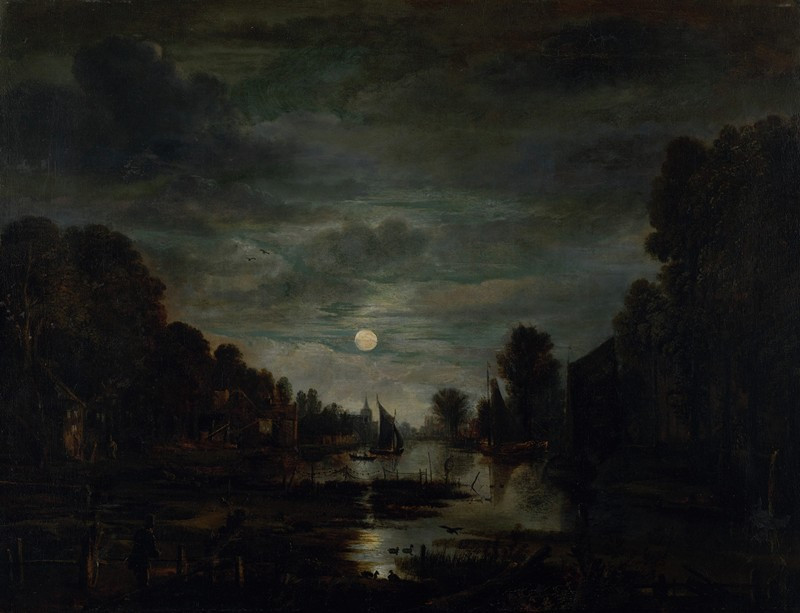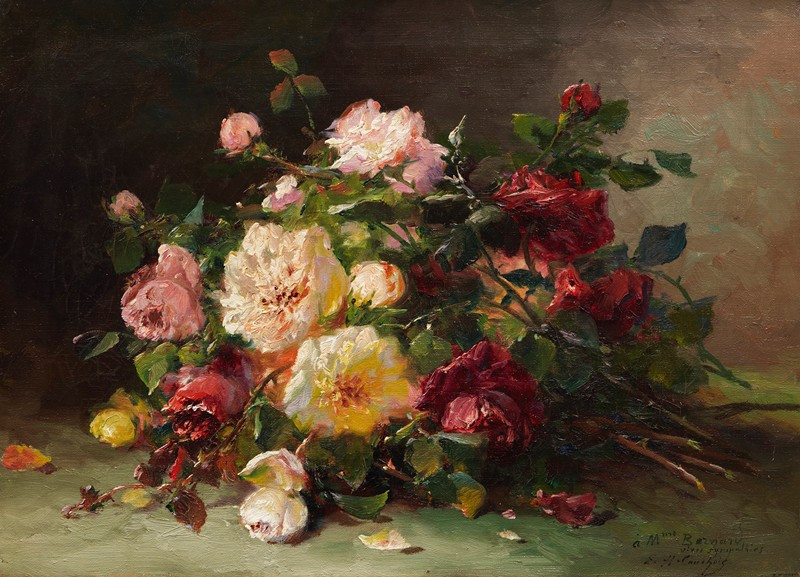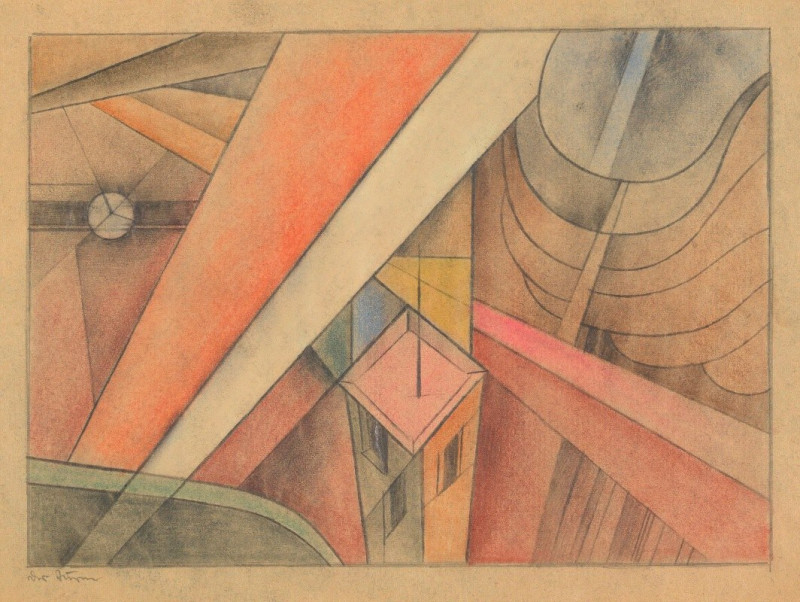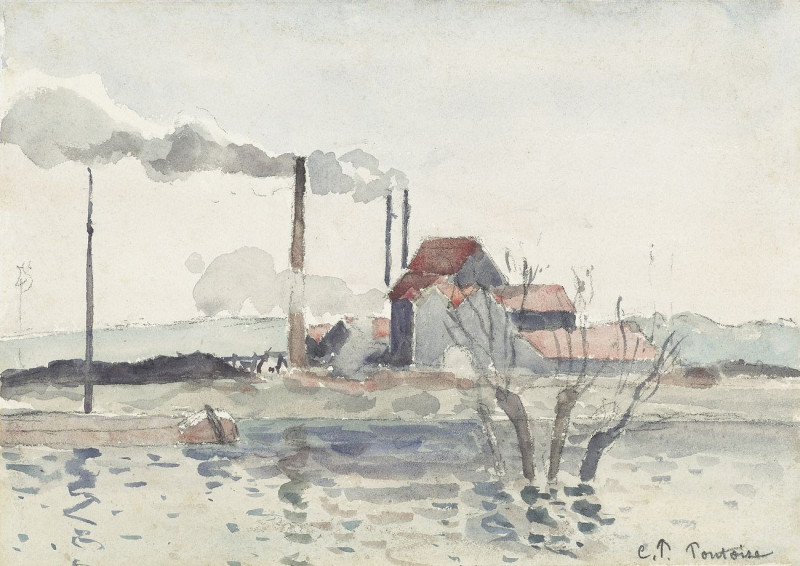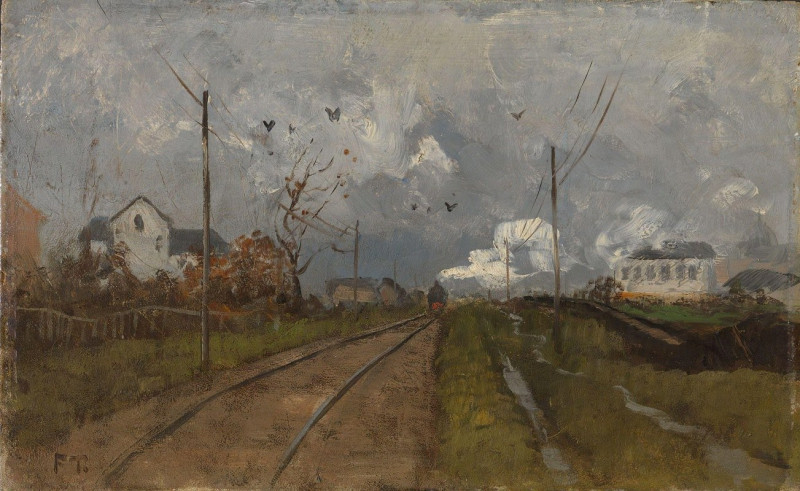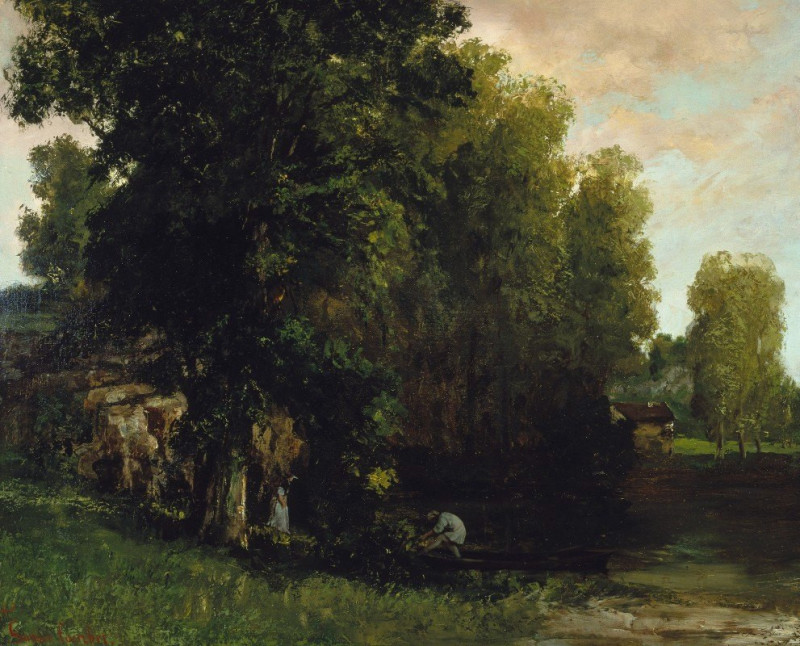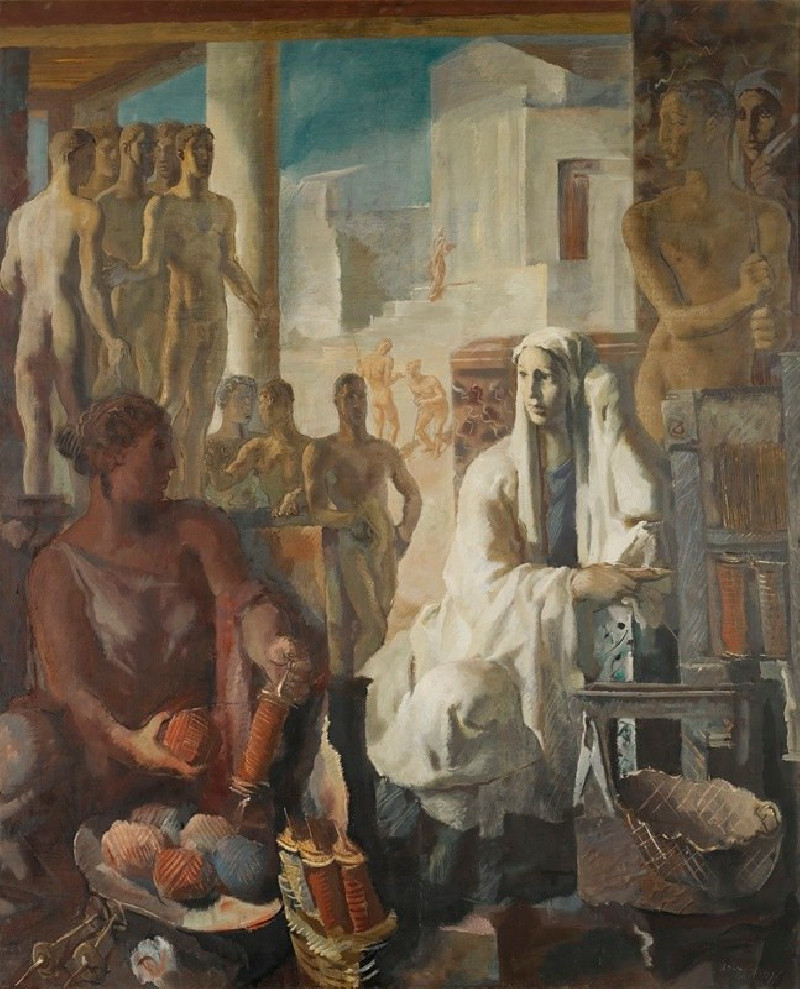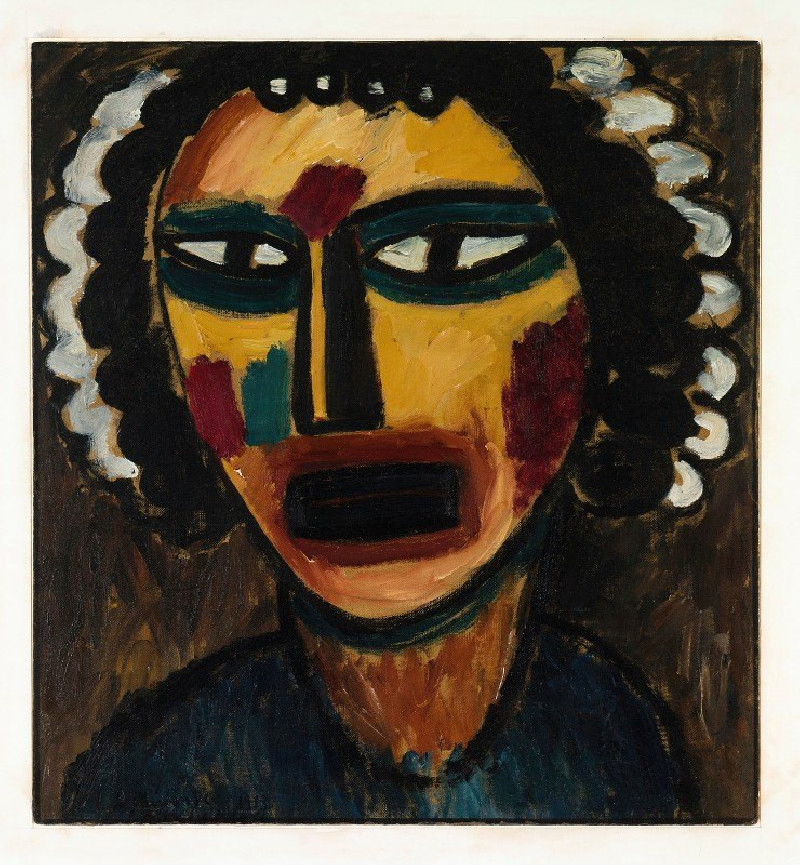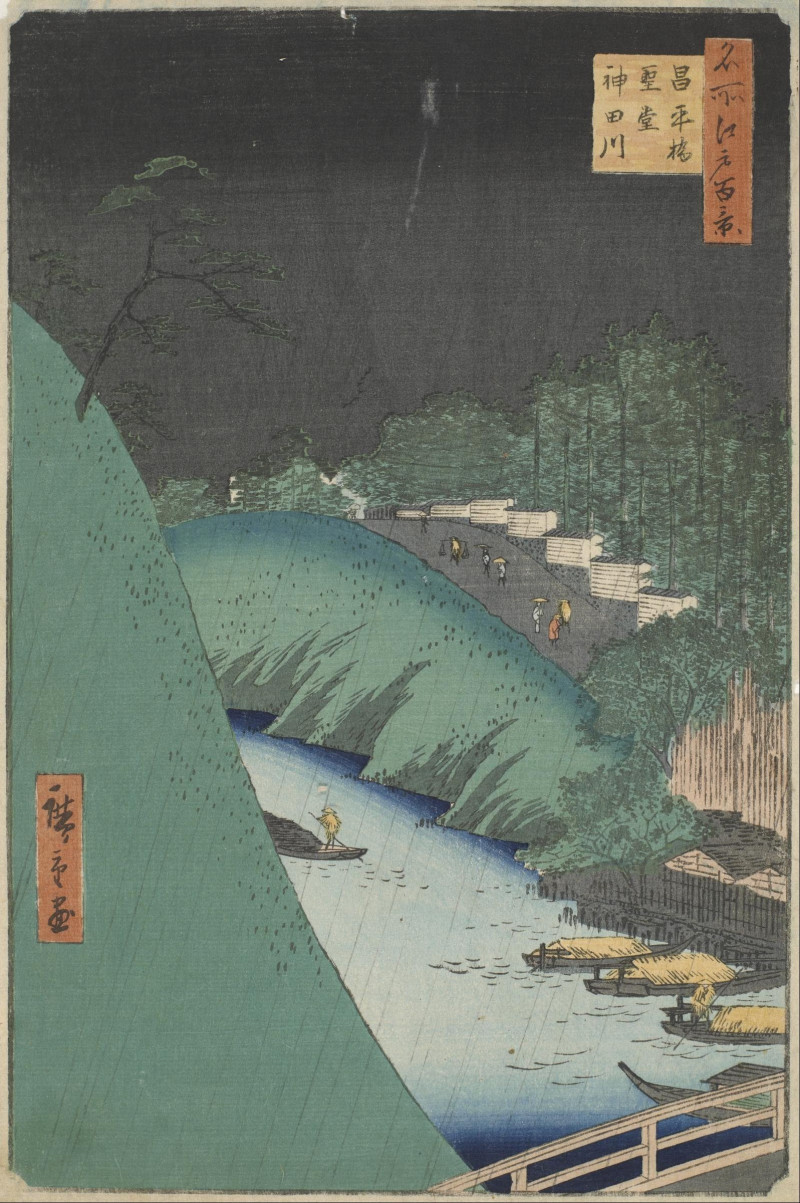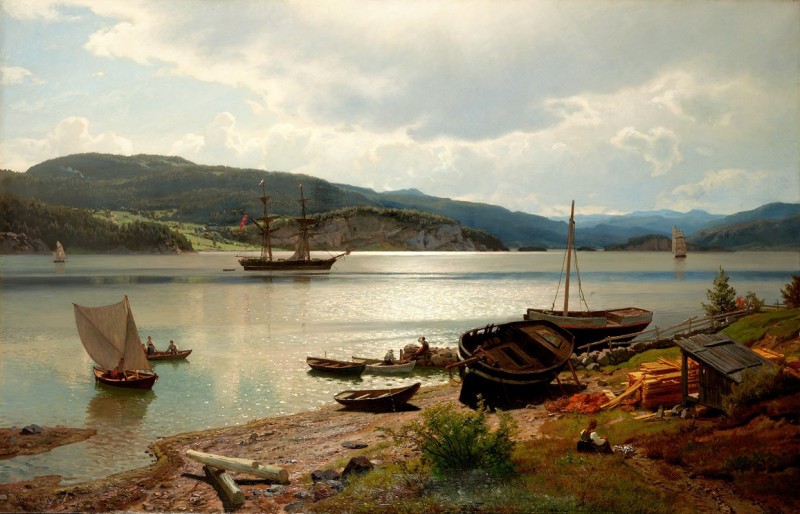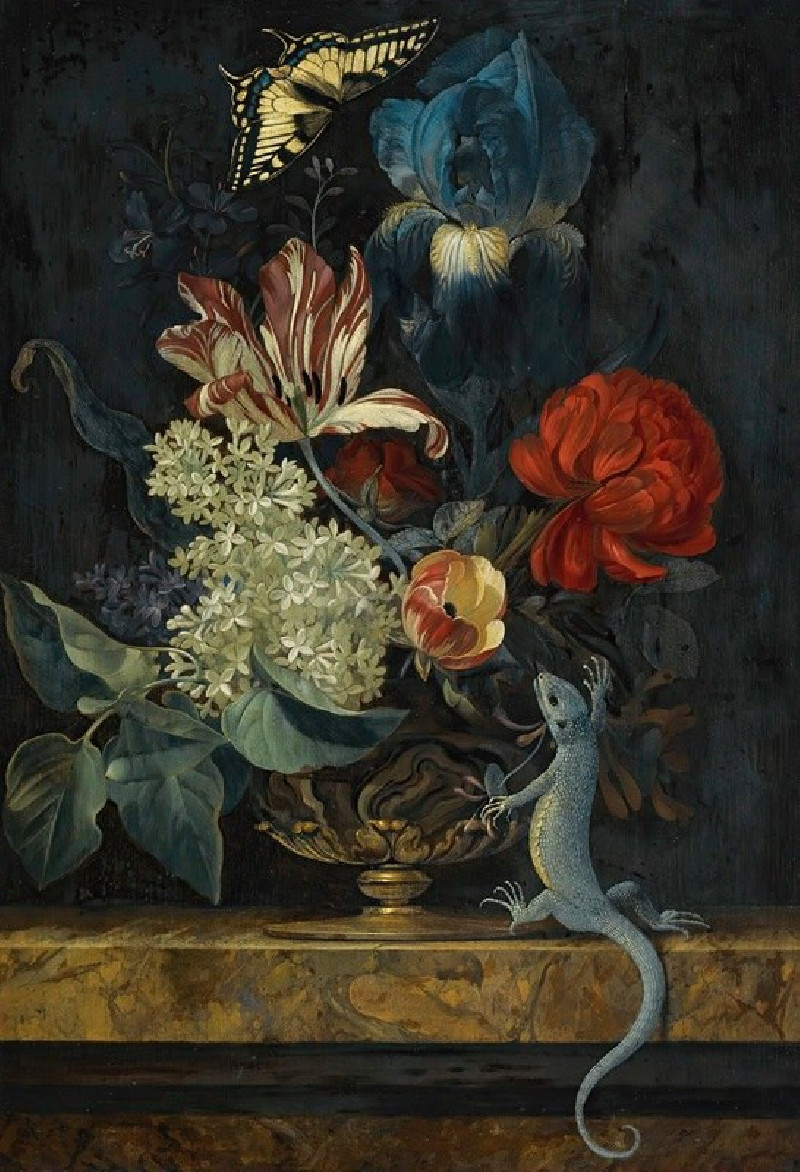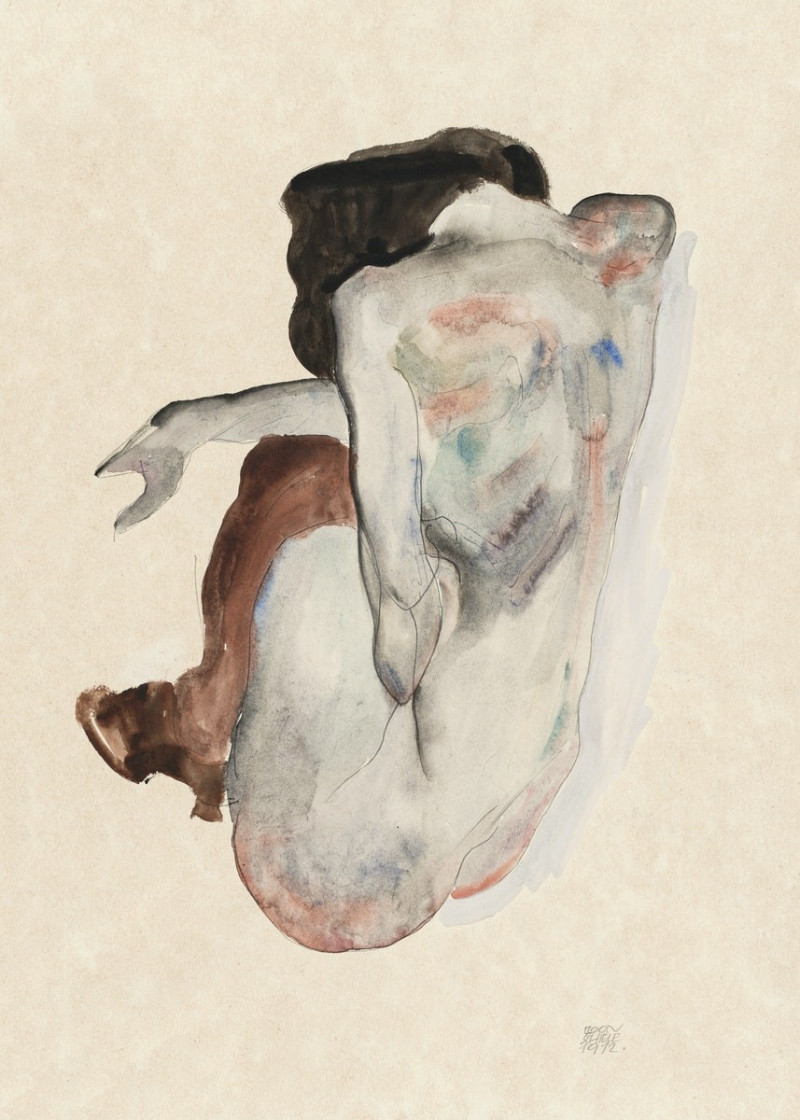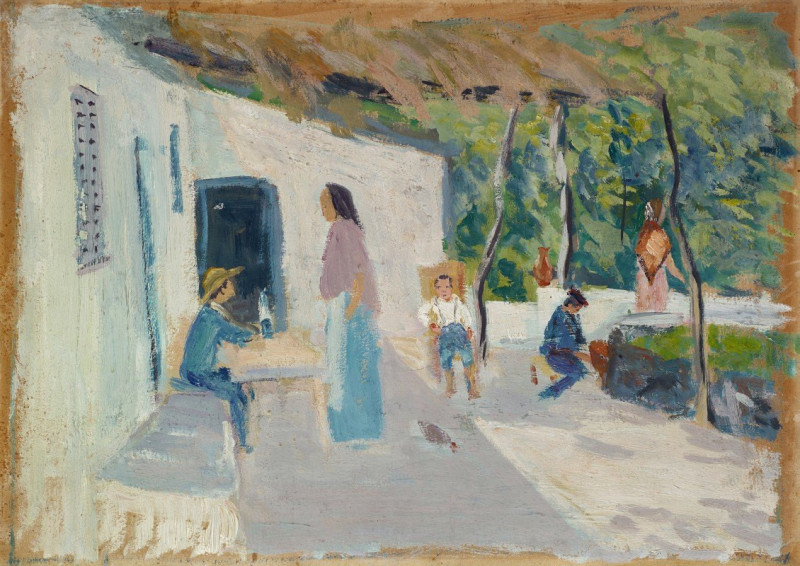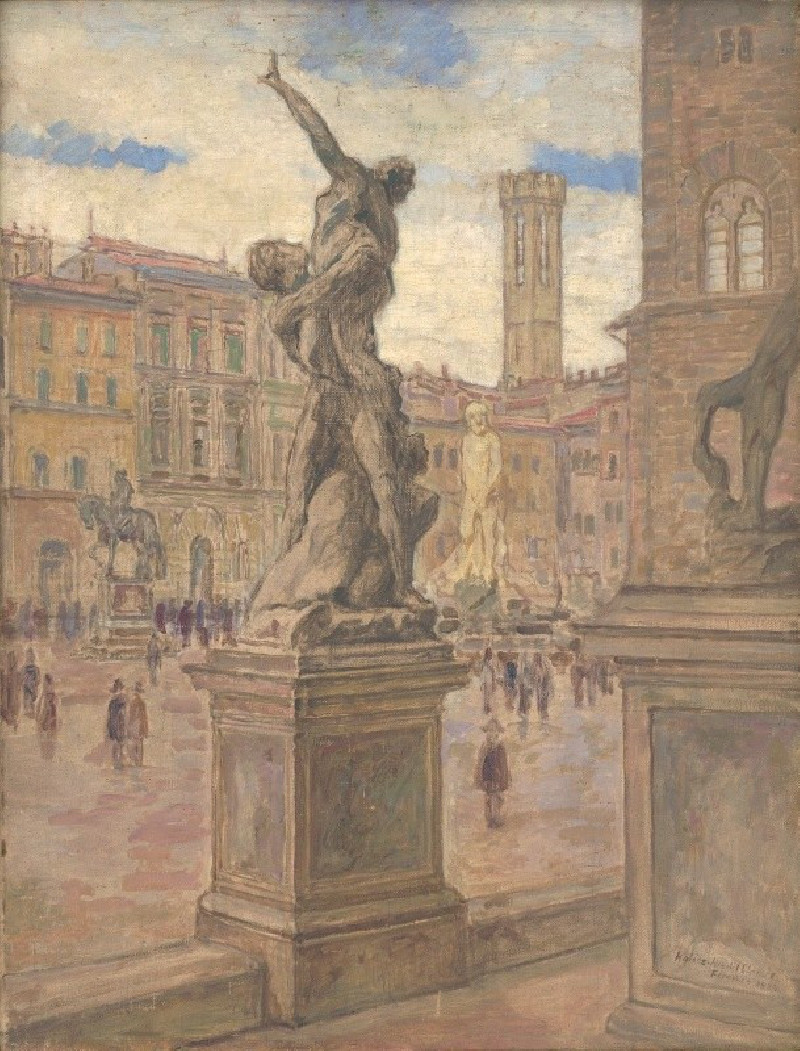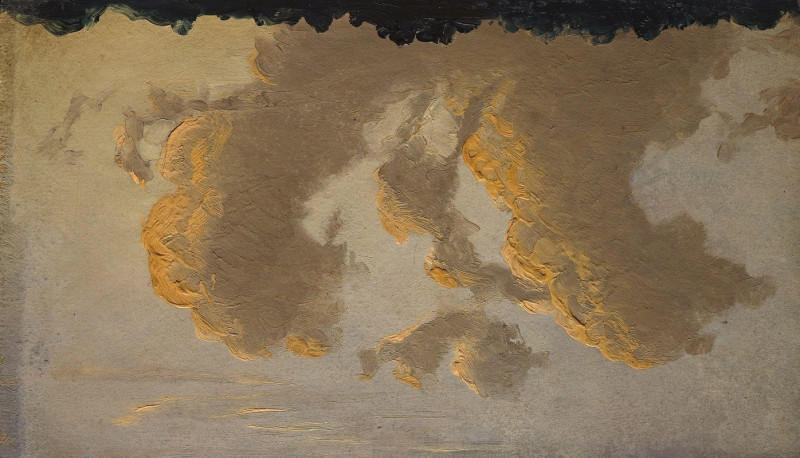Die Große Seestrasse in Wannsee mit Spaziergängern (1920)
Technique: Giclée quality print
Recommended by our customers
More about this artwork
"Die Große Seestrasse in Wannsee mit Spaziergängern" (1920) by Max Liebermann showcases the vibrant intersection of nature and daily life in early 20th-century Berlin. This painting captures a blissful day on the grand lakeside avenue in Wannsee, a popular retreat for Berliners seeking solace away from the bustling city center.In this impressionistic depiction, Liebermann masters the play of light and shade, with dapples of sunlight spilling across the avenue through a lush canopy of trees. The rich texture and swift brushstrokes energize the scene and evoke the leisurely pace of a weekend escape. The avenue is bustling with life; groups of elegantly dressed pedestrians and families navigate the broad walkways, engrossed in gentle conversation or lost in quiet contemplation.The strategic use of colors—subtle greens, earthy browns, and splashes of brighter hues—highlights the interaction between the man-made and natural worlds. Liebermann's skillful representation not only captures the visual beauty of the scene but also the serene and almost lyrical atmosphere that pervades this suburban landscape.
Delivery
Returns
Max Liebermann was a German painter and printmaker of Ashkenazi Jewish ancestry, and one of the leading proponents of Impressionism in Germany.
The son of a Jewish fabric manufacturer turned banker from Berlin, Liebermann grew up in an imposing town house alongside the Brandenburg Gate.
He first studied law and philosophy at the University of Berlin, but later studied painting and drawing in Weimar in 1869, in Paris in 1872, and in the Netherlands in 1876–77.

